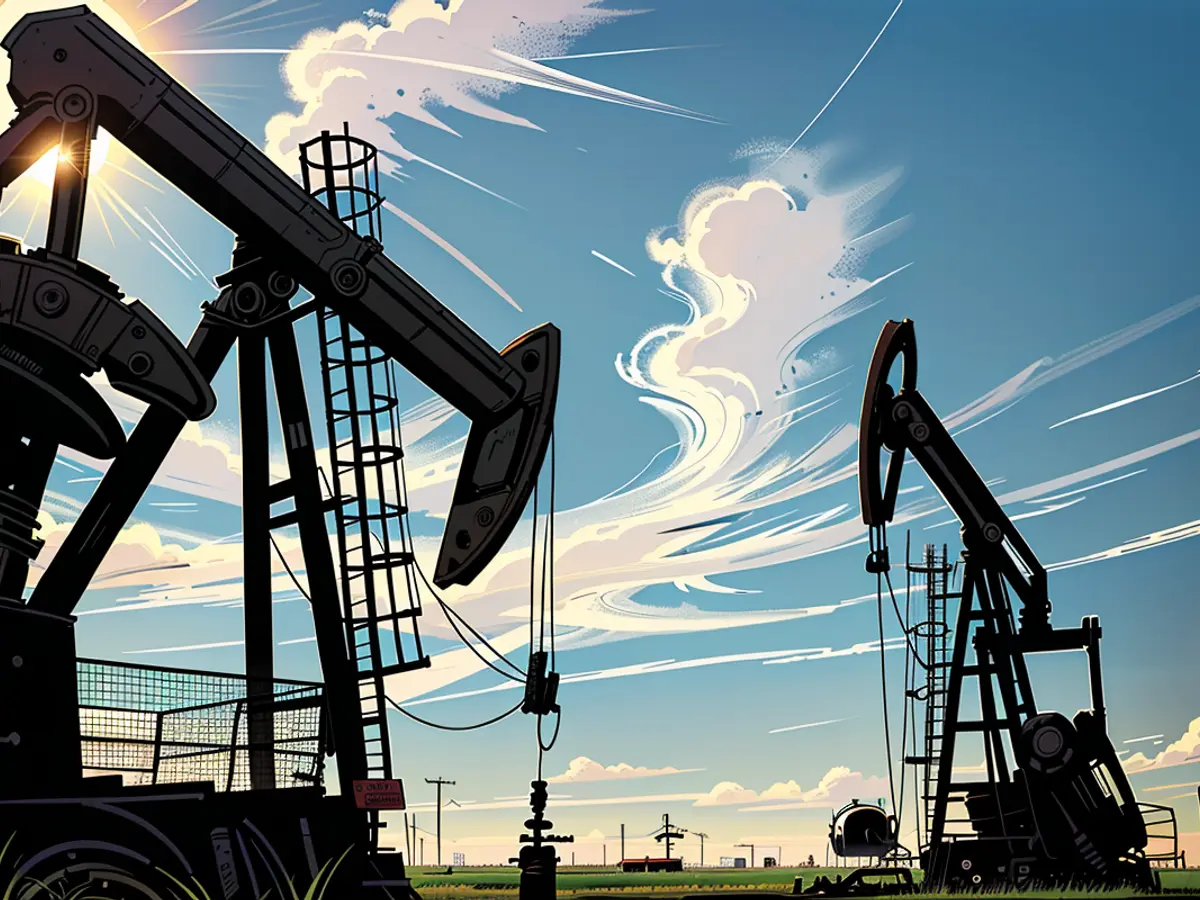Harris and Trump repeatedly discussed increasing oil production. However, there exists a challenge in that regard.
Harris, under fire for her past opposition to fracking, highlighted her role as the deciding vote in the Senate to authorize new fracking leases in 2022. Despite continuously advocating for clean energy alternatives, Harris acknowledged the United States' unprecedented oil production under the Biden administration, surpassing any country's output ever before.
Meanwhile, Trump, an advocate for accelerated oil production expansion, criticized Harris for proposed policies he argued would ruin America's fossil fuel industry. "If she wins, the day after, they'll go back to destroying our country. Oil will be extinct. Fossil fuels will be extinct," Trump declared.
Trump also alleged, "She wants to ban fracking in Pennsylvania and other places," a claim Harris denied.
Andy Lipow, Lipow Oil Associates' president, expressed no concern about the fossil fuel industry's potential demise. Americans still depend on oil for gasoline, diesel, and jet fuel.
Ending fracking, let alone the entire fossil fuel industry, would be detrimental for politicians, risking voter backlash due to escalating gasoline prices.
Despite the candidates' apparent backing for fossil fuel production growth, there's uncertainty about the necessity of significantly more oil in America. (Climate scientists argue this is the exact opposite of what the planet needs.)
US crude prices dipped below $66 a barrel on Tuesday, their lowest since December 2021, then slightly rebounded on Wednesday.
Gas prices are at a six-month low, according to AAA. Fears of oversupply and weak demand in China have led OPEC+ to postpone plans to boost output.
American oil production has hit a record of 13.4 million barrels per day, as per weekly federal data.
Lipow expressed doubt about the feasibility of pushing US output beyond 14 million barrels per day due to the exhaustion of the most efficient and cost-effective drilling sites.
"Yes, production can go higher. But is there a realistic chance of increasing oil production by 50%?" questioned Lipow.
Bob McNally, Rapidan Energy Group's president, shared Lipow's skepticism regarding the possibility of a significant US oil output surge.
"Presidents don't have direct control over rapidly increasing US oil production. The industry operates at full capacity," said McNally, who served as a presidential energy advisor during the George W. Bush administration. "Presidents can damage production rapidly, but I wouldn't suggest Kamala Harris would do so."
Trump recently boasted about gas prices being under $2 per gallon during his presidency. He promised to return gas prices to that level if elected again.
However, there are several challenges with this: The last time gas was below $2 per gallon was during the pandemic shutdowns, leading to a collapse in demand for fuel. It even caused oil prices to turn negative for the first time ever.
Before the pandemic, gas prices were below $2 per gallon in 2016, when America witnessed drastic fossil fuel production growth, leading to an oversupply, ultimately leading to several companies' bankruptcy. And prior to that, gas prices were below $2 per gallon during the global financial crisis.
As a result, it would require an unprecedented or catastrophic event to drive gas prices below $2 per gallon again. In other words, a new president can announce drilling permits and expand fracking zones, but there might not be an actual market for the produced oil, and it might not be financially viable for companies to exploit it.
In light of the record-breaking American oil production of 13.4 million barrels per day, some businesses may see opportunities for investing in the oil industry. However, President Bob McNally cautions that presidents have limited control over rapidly increasing oil production and suggests that pushing US output beyond 14 million barrels per day might be unrealistic due to the exhaustion of efficient drilling sites.








